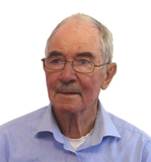 Archive
Archive
2013 Symposia Report
March 14-15: Kanbar College of Design, Engineering & Commerce, Philadelphia University
April 4-5: Murray Edwards College, Cambridge University
In Spring 2013, over 200 representatives from 33 countries gathered at two key events for materials educators. They came together as a community passionate about materials education, from universities and colleges where they teach undergraduates about materials within engineering, design, architecture, sustainability, and other science subjects. Two days of talks, workshops, discussion sessions, networking, poster sessions, and a social program provided plenty of opportunities to meet people and exchange ideas as they discussed the trends and ideas impacting materials teaching.
Now in their 5th year, the Materials Education Symposia are established as, in the words of one attendee, 'the main forum for discussion of education issues in Engineering Materials'. This report uses attendees' own word together with some highlights from this year's events to give just a taste of the 'exceptional interactive spirit in this community'
Download the full 15 page color report »
Speaker Program from Philadelphia »
Speaker Program & Abstracts from Cambridge »
 Foreword by Prof Mike Ashby
Foreword by Prof Mike Ashby
Chair of the Symposia’s Academic Advisory Committee
"Teaching methods today are evolving faster than at any previous time. This is particularly true in the sciences, driven by vastly increased access to information (the Internet, the emergence of MOOCs—‘Massive Open On-line Courses’), by new approaches to teaching (activity and workshop-based methods replacing passive lecture-based teaching, use of social media, the “flipped classroom” concept), by changing global priorities (globalization of science and industry, the environment, sustainable development), and by evolving student expectations. In the past aspiring students competed for places at desirable universities; today it is aspiring universities that compete to attract desirable students.
Materials science and engineering act as a hub at which the pure and applied sciences meet, placing them in a unique position to connect with, and lead, these changes. This year’s two Symposia bear this out. They brought together teachers and representatives of industrial design, engineering materials and design, materials science, industry, and education. The Symposia explored innovation in university education and discussed engagement with current initiatives such as the Materials Genome Initiative. They included workshops and revealing in-class demonstrations, discussion of MOOCs and ‘Just-in-time teaching’. And they had a truly global atmosphere with talks, posters, and contributions to discussion from 33 different countries, among them Russia, India, Estonia, Czech Republic, Turkey, and Columbia. They revealed their very different histories of materials teaching and their present efforts to achieve convergence to provide students the qualifications that are recognized not only in their own country but internationally. Above all, the Symposia were good fun, with lively engagement among all the participants, reinforcing the sense of community that past Symposia have helped to develop.
On behalf of the Advisory Committee, I would like to thank all those whose presentations and contributions made the 2013 Materials Education Symposia such interactive and collaborative events—and hope to see you again in 2014! I am personally grateful to all those who joined me on the Advisory Committee, helping to put together this year’s program from so many excellent submissions. We are particularly grateful to Professor Ron Kander and Philadelphia University and to Cambridge University for providing such convivial venues for this year’s events, and to the following organizations for their support:
- American Society for Engineering Education (ASEE), Materials Division;
- ASM International (the Materials Information Society);
- Philadelphia University (Kanbar College of Design, Engineering and Commerce)
- European Society for Engineering Education (SEFI);
- Federation of European Materials Societies (FEMS);
- University of Cambridge (Departments of Engineering and Materials Science &Metallurgy).
Finally, I would like to add my appreciation to that expressed by so many of the attendees, and thank the team from Granta who, as ever, have enabled these community events to run so smoothly. "
See you all next year!
Following the success of this year's events, the Academic Advisory Committee will meet to decide on next year’s Symposium themes in June. They encourage those interested in sharing their materials education experiences to keep an eye on the Symposium website and consider submitting an abstract for a talk or poster... or both!
- March 18-22, 2014 University of Illinois Urbana Champaign
- April 8-12, 2014 University of Cambridge
- December 9-12, 2014 National University of Singapore
